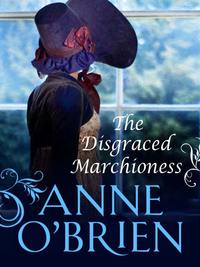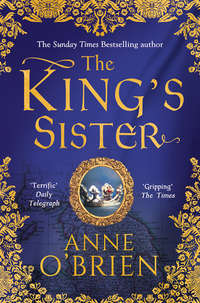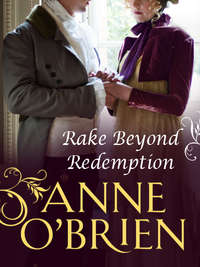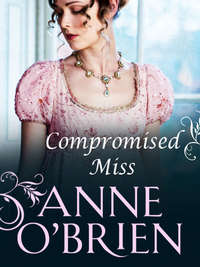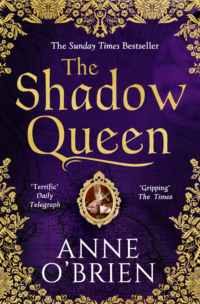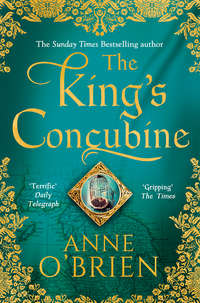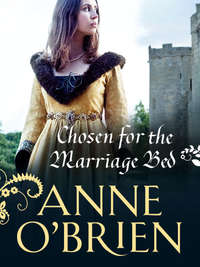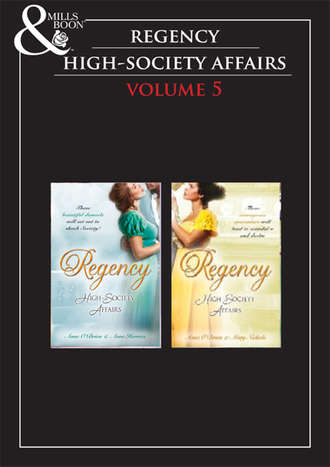
Полная версия
Regency High Society Vol 5: The Disgraced Marchioness / The Reluctant Escort / The Outrageous Debutante / A Damnable Rogue
‘You must know Judith well enough to appreciate the advantage of having her as a member of this family,’ his lordship replied again with commendable but hard-won patience. ‘Her social life is hectic, I remember, and little passes her keen eye or ear, unless she has changed beyond recognition since I saw her last. It seems to me that Octavia must have come out in the spring of 1812. If my memory serves me well, so did Judith. I have no recollection of Octavia at any of the Season’s main events, but Judith might. Thomas and I squired her to any number of incredibly tedious parties, balls and soirées when she was intent on fixing her interest with Simon Painscastle. Perhaps she will remember Miss Baxendale making her formal curtsy to society. And, more to the point, if there was any obvious close relationship developing between Thomas and the lady. Judith, I believe, is quite our best source of gossip.’
‘An excellent idea.’ Mrs Stamford’s face brightened as she saw the value of the connection and so allowed a complete volte-face. ‘Lady Painscastle is a lively and eminently sensible young woman. She might indeed have noticed something between the pair—which you did not.’ Thus Mrs Stamford damning the inadequacy of the whole male race.
‘Do you agree, my lady?’ Henry took the empty glass from Eleanor’s hand, noting the return of colour to her face. ‘It might be a painful encounter.’
‘It might.’ She stood and raised her chin. He nodded at the air of determination and the bright sparkle in her eyes. She did not lack for courage, no matter the odds. ‘I shall be ready immediately after luncheon.’
Judith Faringdon, now Countess of Painscastle and most eligibly married to her beloved Simon, was in residence in the family home in Grosvenor Square. She had made an excellent match, with love and affection on both sides, and was now enjoying life as a wealthy and fashionable young woman with all the freedom allowed to a married lady. She was a true redhead with green eyes, both characteristics inherited from her mother, and an abundance of energy all, on this occasion, attractively packaged in an afternoon gown of cream and white muslin. With a pretty face and a lively manner, coupled with an appreciation of the fashions that suited her and a wealthy, well-born husband who adored her and pandered to her every whim, she had entrée into the Polite World. Her love of the pleasures of London was immeasurable. As was her ear for gossip.
‘Hal! I did not know of your return. You look wonderfully well. Life in the colonies suits you. I cannot imagine its attraction but…’ She allowed him to kiss her hand and then opened her arms to clasp him in a warm embrace.
‘And Nell. Mrs Stamford. A family party, no less. I did not expect…’ She hesitated as she recalled the circumstances. ‘I am so sorry, Nell. Forgive me. I did not mean to be so insensitive or unfeeling. Indeed I did not! I too miss Thomas dreadfully—but life must go on, you know.’ She rambled on. All good humour and welcome, if a little shallow. All in all, it was difficult not to like Lady Painscastle.
‘And who have we here?’ She lifted Tom from his mother’s arms and spun him round to his obvious delight, tickling his neck until he chuckled. ‘What a charmer he will be. Another Faringdon, if I am not mistaken, to break our poor female hearts.’ She kissed him enthusiastically. ‘Just look at those dark curls and those eyebrows.’ She frowned at Hal over the baby’s head. ‘And have you broken many hearts in America? I expect so.’
He flushed, the faintest of colours on his lean cheeks, but otherwise ignored her comment.
‘He has your eyes, dear Nell,’ Judith continued. ‘How delightful. Perhaps it is time that I pleased my lord and presented him with a son and heir. You almost tempt me to do so!’
Out of which artless comment, it was clear that the Faringdon Scandal had not yet reached the Polite World!
The visitors seated themselves in a cream-and-gold withdrawing-room, stylishly and expensively furnished, tea was served with due ceremony and Tom returned to his mother’s lap, where he proceeded to gnaw the carved ivory head of her parasol with serious intensity.
‘You all look very grave.’ Lady Painscastle disposed her embroidered and flounced skirts with casual grace as she surveyed her family.
‘Yes. It is a delicate matter, Judith. And not one that we wish to spread around.’ Henry frowned discouragingly at his cousin. ‘I believe that you can help us.’
‘You can trust me, dear Henry!’ She smiled winningly. ‘Of course I will help. And I am always discreet.’
‘Judith! You are the most incorrigible gossip of my acquaintance.’ Lord Henry could not help but smile at his cousin’s naïvety.
‘But not if it will hurt one of my family.’ And however shallow she might be, they knew Judith was right. It made the forthcoming conversation more bearable.
‘Think back to your coming-out, Judith,’ Henry prompted. ‘Four years ago, I think, in the spring of 1812.’
‘Yes.’ Judith nodded, lifting up her bone china teacup with an elegant hand. ‘I have been married to dear Simon for three years now.’
‘Can you recall a young girl—about your own age. Octavia Baxendale. Fair hair. Blue eyes. A little shorter than you, perhaps. A neat figure. A quiet and unassuming girl, not one to take the town by storm, but pretty enough. She would have been accompanied by her brother and perhaps her mother. I have no recollection of such a female, but you might.’
‘Well, you wouldn’t, Hal! Melissa Charlesworth came out in that year. You were besotted, I remember. I doubt you noticed anyone else!’
‘Never!’ His frown was definitely more pronounced.
‘You even went to Almack’s, drank tea and lemonade, danced country dances and allowed yourself to be sneered at by the Princess Esterhazy for making a comment about the war or some such taboo subject! You were in love! Until Melissa threw you over—a mere younger son as you were!—and married the Earl of Saltmarshe. She always did have an eye to a fortune, no matter how ugly and old the husband.’
‘Never mind that.’ He rose to his feet to pace the room with impatience and perhaps a little unease. Eleanor hid a smile in spite of herself. ‘What about Octavia Baxendale. Do you have any recollection of her?’
‘Well, now. Let me think. Perhaps I do recall. But it is so long ago—and Thomas flirted with any number of ladies. I particularly remember one débutante—but she had curls as black and lustrous as a crow’s wing. I believe I envied her, admired her colouring more than my own—foolishly, as Painscastle was quick to reassure me…’
Lord Henry sighed. ‘Do try to concentrate Judith. Fair hair, blue eyes.’ He looked to the ceiling in despair.
‘Well!’ She folded her hands and thought, the effort palpable. ‘I think I might remember her at some of the occasions. With a brother, perhaps? The name Octavia seems familiar. But I am not at all certain. Why do you wish me to remember something so inconsequential?’
‘Can you recall—did Thomas flirt with her? He escorted you to enough balls and soirées—he must have come across her if you did.’ Henry ignored her demand for some clarification.
‘I don’t know. Well, yes, perhaps I do remember a fair girl, and perhaps he did. If it is the girl I am thinking of, she had a liking for pink. A colour I can never wear.’ She bared her teeth as Hal’s temper came close to boiling point. ‘I know…I am trying, Hal. If it is the girl in question, I remember thinking that he could not be serious about her as a bride—a respectable family only. As Marquis of Burford he could look so much higher than a mere country miss.’ She flushed with mortification as she heard her own words, the deep wash of rose clashing remarkably with her auburn colouring as she saw Eleanor blush with discomfort and Mrs Stamford’s eyes flash a warning.
‘Oh, Nell.’ Immediately remorseful, the lady put down her teacup and stretched out a hand to touch Eleanor’s cold fingers, ‘My tongue runs away with me, as you know. I meant no criticism. Indeed I did not. Anyone could see that you and Thomas were so well suited to each other.’
Henry sighed and tried manfully both to preserve his patience and steer the conversation back into its previous channel. Neither was easy. ‘Judith—did it ever occur to you that Thomas was more serious about the lady than a mild flirtation?’
‘Perhaps. He once rode with a fair lady in the park, I know. And escorted her to supper.. He certainly stood up with a lady of such colouring at Almack’s. And I think at my own coming out ball in Faringdon House. But there could have been any number of fair débutantes. I suppose if it was the same lady Thomas must have been taken with her to single her out, mustn’t he? Don’t you remember, Hal?’
‘No. Presumably I was still concentrating on Melissa Charlesworth! You are not a deal of help to us, Judith.’ Henry set his teeth and continued to probe his cousin’s erratic memory. ‘Did Thomas go down to Brighton that year?’
‘I have no idea.’ Judith frowned at the close questioning. ‘Why?’
‘No matter. What happened to Miss Baxendale after the Season? Did she marry? Did she have another Season?’
Judith shook her head. ‘If Octavia is indeed the girl I am thinking of, I believe that she might have left before the end of the Season, before my own engagement to Simon, I understand. Rumour said—I think!—that she had contracted a more than suitable marriage—with money. But more than that I know not. You should talk to my mother. She has an excellent memory. Too good, sometimes, when I wish she might forget some trifling indiscretion from my childhood.’ Judith looked from Henry to Eleanor and back again in frustration, green eyes sharp as she scented gossip. ‘But why all these questions about someone we do not know and events that happened so long ago? You must tell me! You are keeping me in suspense—which is unforgivable.’
She looked at the faces around her tea table. At the quick meeting of eyes between Lord Henry and Eleanor, Eleanor made the decision.
‘It appears,’ she informed Judith in a calm voice, ‘that Thomas may have been the suitable match you spoke of, contracted by Octavia in the spring of 1812. Thomas, it seems, may have married her and kept her in seclusion in the country. And had a son by her.’ She hesitated, touching her tongue to dry lips. ‘It appears—it is possible that—I am not, and never have been, the Marchioness of Burford.’
Judith’s eyes widened in horror.
‘And we would be more than grateful if you did not spread that story around town, however tempting it might be to do so!’ Mrs Stamford added with a fierceness not usually encountered over an afternoon tea-drinking.
Judith, eyebrows arched in incredulous disbelief, was reduced, for once, to amazed silence.
Lord Henry trod the stairs late that night.
He was tired. A headache, which he could no longer ignore, however unusual it might be for him to suffer such a trivial affliction, lurked somewhere behind his eyes. A long day with nothing to show for their combined efforts but confirmation of their worst fears. The documents appeared to be legal. Sir Edward was not a member of any of the gentleman’s clubs visited by Nicholas and, as far as they knew, did not gamble, whether lightly or heavily. There were the gaming hells next, of course. Henry sighed at the prospect. Nicholas would object, but he would do it with good grace. And Cousin Judith remembered a tender flirtation between Thomas and a pretty fair-haired girl who had retired from society at the end of her first Season with rumours of an advantageous marriage. A young girl whose name she thought was Octavia.
He groaned and silently cursed the cruel hand of fate.
It left Eleanor in an unspeakable position, any opportunities for optimism fast disappearing, as mist at the rising of the sun.
What the hell were you doing, Thomas?
Yet, curse as he might, Henry still found it difficult to see his brother in the role of treacherous, machiavellian husband to two wives at one and the same time, with a child by both. The subterfuge just did not fit. Far too complicated and devious for Thomas, far too insensitive to those involved.
Now for himself, Henry mused, well. A grim smile, a mere ghost, crossed his face. It would be more likely, at any event. But even he would draw the line at two wives!
The house settled into silence around him. Nick had gone out to join a party of friends to talk horseflesh and drink gin at Limmers in Conduit Street. Mrs Stamford—who knew? She had sufficient acquaintance in town to provide her with entertainment. Eleanor had retired early, probably worn out through trying to keep a brave face on the fact that she was fast becoming a bigamous wife and her child illegitimate, with no source of support, financial or otherwise. She had used harsher terms, he remembered, in a moment of anguish. Whore and bastard. He flinched at the deliberate brutality. It was certainly how the world would see it, and there was nothing he could say to make matters any better for her.
The lights on the first floor were low, one branch of candles left burning. And he was too tired to think any more. Tomorrow he would go to Whitchurch and find the Reverend Julius Broughton. He would verify that cleric’s role in the proceedings. It might achieve nothing, but at least he would feel that he was doing something. And he would know if the marriage of Thomas with Octavia Baxendale had actually existed.
He yawned. And came to a halt on the landing. Further along on the right a door was ajar. The baby’s room. A gentle light spilled out, very low. Probably the nursemaid come to check on her small charge.
Then a soft voice reached him, crooning a lullaby. A low voice, sweet and tender. He was immediately drawn to it and came to stand silently in the half-open doorway.
The child must have been restless. Rather than summon the nursemaid, Eleanor had come herself to comfort him. Of course she would, he acknowledged. The child was her only connection with Thomas, even more of an anchor in these stormy waters.
She sat in a low chair, a single candle on the little table casting its light from behind to rim her figure in gold. Apparently the infant now slept. Eleanor’s song had become a gentle humming, her hand on the edge of the crib, rocking gently, her eyes fixed on the sleeping face.
Henry could not take his eyes from her, his thoughts and feelings suspended in that one moment. She had risen from her bed, her hair unpinned from its fashionable style but yet unbraided so that it fell in a glory of waves over her breast. A peignoir lay in soft overlapping layers of cream silk and lace from a high neck to cover her feet. Her face was calm. Her eyes hooded. Her lips curved in a tender smile. A Madonna, indeed.
His heart thudded against his ribs as the scene imprinted itself on his mind. She was so beautiful. And he had lost her to his brother. For the first time in his life Henry cursed the dead Thomas, even knowing that the blame could not in any way be heaped at his brother’s feet. He had lost her. And yet for the past two years he had tried to persuade himself that his love for her was dead, destroyed when she had broken her promise to him. Wrong! Totally and utterly wrong! The voice in his mind and his heart would no longer allow him to pretend. His love for Eleanor was as strong as ever. And just as doomed. He must not allow it to be a burden on her—and so must bear it on his own shoulders, his emotions hidden.
A tingle of awareness touched Eleanor’s spine and she knew that he was there.
She could pretend that she did not know, of course, conscious of a ripple of embarrassment to be discovered like this. If she kept her face turned towards the crib, he might walk away as silently as he had come. But she felt the compulsion of his eyes, felt her pulse pick up its beat in response. What did it matter that he saw her watching over her child in the dark of the night? After all, there was no one else to care.
She looked up, a slight turn of her head.
Her eyes, deeply violet-blue with love and compassion for her son, looked on his and could not look away, caught in his gaze.
Henry was drawn to her as a moth drawn to its ultimate destruction in the vibrant glow of a candle flame, against all his instincts to keep his distance from this lovely girl—woman, now—who had stolen his heart, and still held it in chains. Walking softly forward, so as not to disturb the child, his eyes never left hers. What compulsion drove him he did not know—and she made no move to stop him, equally trapped in the moment, to bring him to his senses. Placing a hand on the back of the low chair, he bent to allow his fingers to lift to her throat, to caress the graceful curve of her nape beneath her hair. She neither flinched nor resisted. If she had, he promised himself he would leave her. But she remained motionless, perhaps even leaned into his touch when he allowed his palm to brush and then cup her cheek, in the lightest of restraints. So he bent his head, slowly, deliberately, to take her lips with his. Whisper soft, mouth on mouth, encouraged by the small sound of pleasure in her throat. He savoured the sweetness of her breath, her mouth, her surrender to him.
It was a moment of impossible tenderness, recognised by them both, as the babe slept on by their side. Eleanor raised her hand to close her fingers round his wrist, a warm bracelet that held him, gentle yet burning him with its heat. Her breath caught as he deliberately allowed his tongue to trace the outline of her lips. She sighed against his mouth.
‘Hal.’
Her perfume, the fine texture of hair and skin, her softness entrapped him, caught in that heart-stopping moment.
Then he eased back to look down into the beautiful face, a depth of emotion in his eyes. He could not have expressed his desires aloud for the world. But he captured her other hand from the side of the crib and lifted it to press his lips to the centre of her palm, marvelling at the softness of it.
‘Nell…’
He murmured her name, the only word he had spoken since he had come into the room. A whisper of passion restrained. He ached with hard arousal, desire for her, a powerful need to touch and be touched, pulsing through every cell in his body.
When tears sparkled on her lashes he reached, without thought, to remove them with his lips.
Then he drew back and pushed himself to his full height. What could he say? It was a moment beyond words. So much promise, so much pain between them. So many broken dreams. He gave a little bow, strangely formal. Then turned and left the room as silently as he had come.
Henry’s actions—and Eleanor’s response—left emotions in turmoil. For both of them.
Chapter Five

On the following morning Lord Henry found himself alone in the sunny breakfast parlour. It was as he expected—and planned; it was still very early, but he intended to be under way to the village of Whitchurch before the rest of the household had risen. With good fortune he would return within the day. It crossed his mind with some force, and had done so more than once during a restless night of knife-edged introspection, that it might be to his advantage if he did not have to make conversation with Eleanor that day. What had driven him to such an unwise gesture towards her? He cursed himself once again for his blind stupidity. Within a few weeks this whole fiasco would be settled one way or another, and he would leave England. He would be out of her life for good—and he would be free to forget her and return to the attractions of Rosalind. But even though he swore at his uncontrolled actions, castigated himself for not keeping his distance, he was being driven to admit that he was not unmoved by Eleanor’s plight. Unmoved? He swore again, brows drawn into a black bar. A magnificent understatement! He had loved her once and was bitterly aware that, however inappropriate and insupportable it might be, given their past history, he loved her still. Wanting nothing more than to take her to his bed, to undress her, to touch, to taste and to savour her for the rest of his life. To feel her stretch against him, beneath him, and hear his name on her lips when he roused her beyond thought and beyond sense. It would have taken a man of callous indifference not to respond to her plight of the previous night without tenderness and compassion. And where Eleanor was concerned, Henry was not that man.
So it would be better for everyone if he did not have to exchange polite conversation with her that morning! And doubtless Eleanor too would welcome his absence.
The door opened and there she stood.
They both became very still, Lord Henry with a teacup raised to his lips, Eleanor braced in the doorway. The previous night loomed between them, tension stark.
‘Good morning, my lady. I trust you slept well.’ Henry rose superbly to the occasion with the first bland comment that came to mind, wincing inwardly at his lack of polish. Then the emotional memories of the previous night were effectively wiped from his mind. With eyes narrowed he surveyed the lady from her head to her feet, momentarily taken aback.
She had taken his advice! And with stunning effect. He had not really expected it, but she had cast off her deep mourning and her black ribbons. The result took his breath, silenced any comment he might have been about to make. His memories of her had been as a débutante, certainly beautiful, but still ingenuously naïve in simple pastel muslins. And then in mourning, the stark black of her high-necked gowns highlighting her glorious hair and porcelain skin, grief adding a fine-drawn maturity to her face. But now he was struck anew by her beauty. Two years had added sophistication, elegance, confidence. An unfathomable grace. He had not realised the true worth of the woman he had lost that night when he had sailed without her. But he realised it now, with a blow to his gut, over the breakfast table with the sunshine pouring through the windows.
She had abandoned her black silk for a walking dress in dove grey spotted muslin, banded with a delicate interweaving of purple and amethyst flowers, the whole completed with a frilled hem. Its sleeves were long and tight with short puffed oversleeves, the neckline high and pleated into a little frilled ruff. It fit to perfection, emphasising her slender figure, the embroidered decoration bringing out the intense colour of her eyes. She glowed in the morning sun, the fragile tints shimmering round her. It might still be mourning, demure and understated, but it complimented her colouring beautifully, her hair falling rich and burnished in a profusion of artless curls from a high knot to her shoulders.
His eyes came slowly back from their appreciation of her transformation, his mouth dry, words beyond him, to study her face. She did not look rested. Her pale skin still lacked colour, her eyes were strained and the shadows still left their delicate imprint. But she looked determined, a challenge in every line of her firm shoulders and the proud carriage of her head. She also looked apprehensive.
How fortunate, she realised, that he could not read her thought as she stood under his unnerving gaze. She had dreaded this meeting, needing all her pride and composure. But she had dressed for impact and raised her chin against any disapproval she might read in his face. She should never have allowed him to touch her. But she had, and had melted beneath the unmistakable tenderness of his touch. A mistake! Which she would not repeat, she promised herself—however great the temptation to do so. She would hide her trepidation behind a mask of fashionable unconcern. Yet she still found it well nigh impossible to lift her eyes to his or accept his critical survey with any degree of ease.
‘My lady!’ Henry rose to his feet at last, and bowed his head in acknowledgement of her gesture. But he did not approach her. Did not dare if he wished to mask the leap of heat in his blood as he studied her. He cursed again as the fire built and stirred in his loins. ‘Allow me to say that you look lovely. And allow me to admit that I did not think that you would do it. What does your mother say?’ His eyes narrowed again at the prospect of biting words from that quarter.


